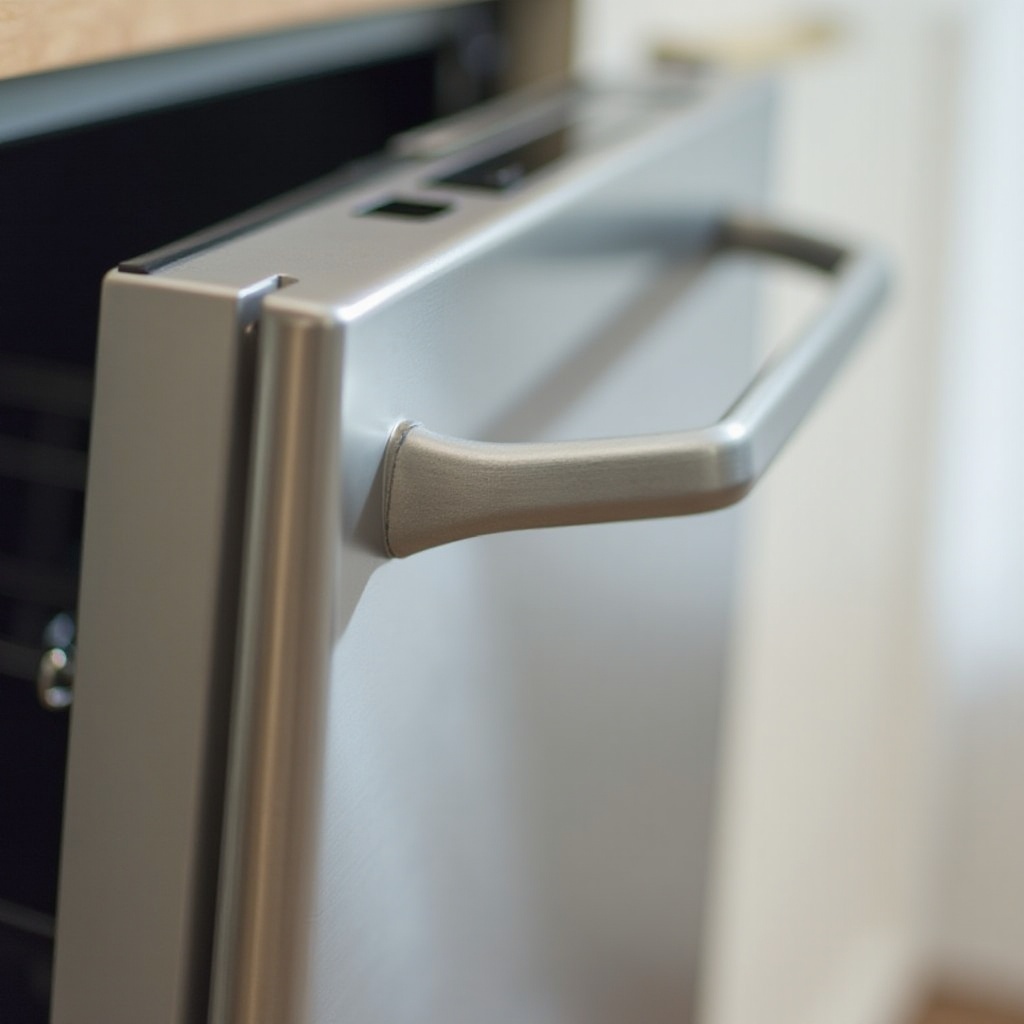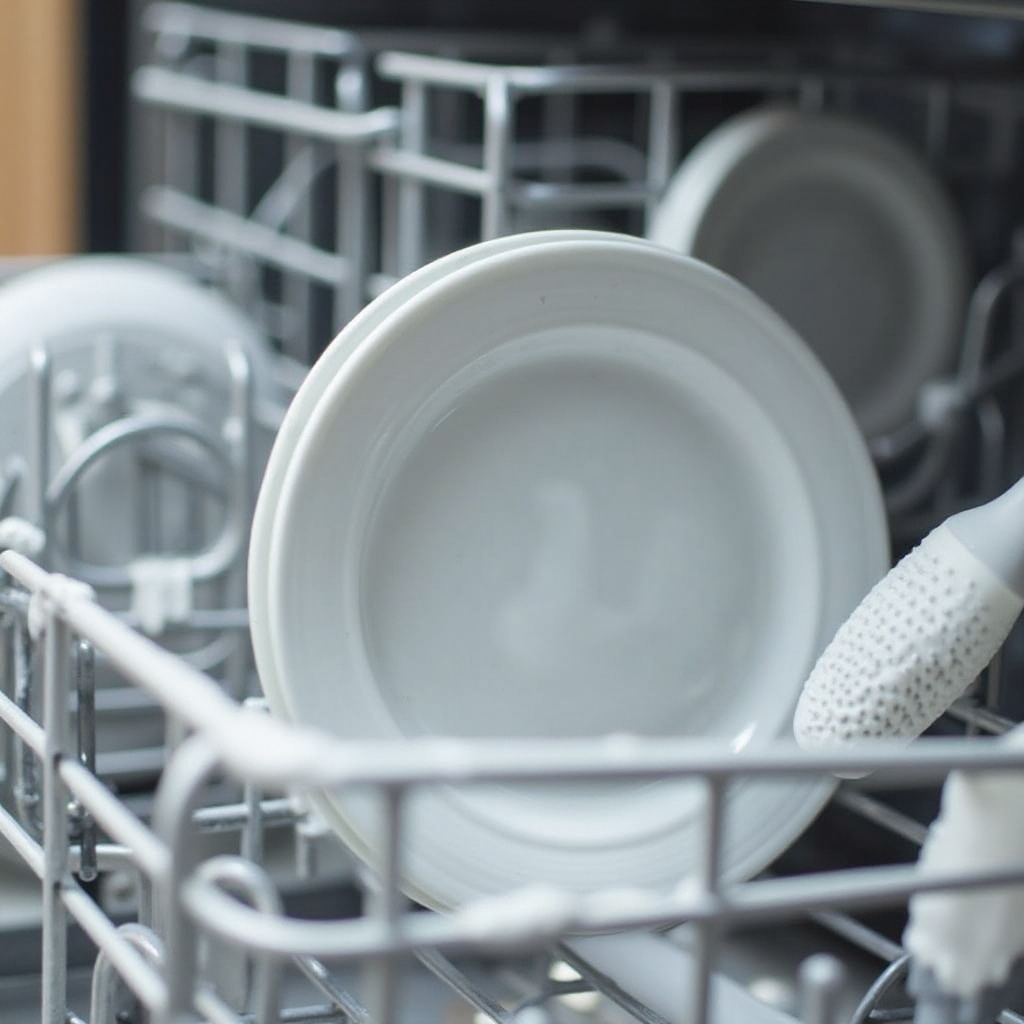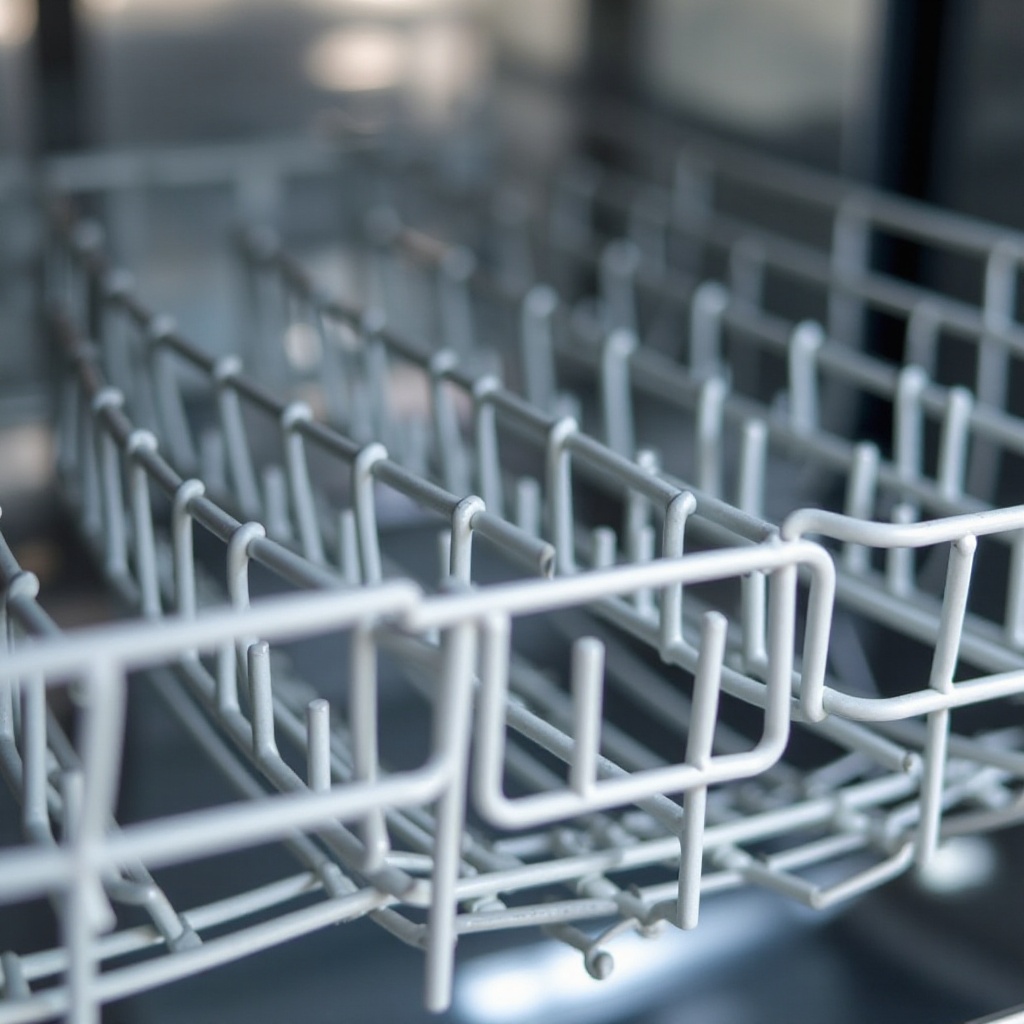Introduction
Discovering white residue on your dishes after a wash cycle can be frustrating. This unsightly film is often caused by hard water stains, detergent issues, or improper dishwasher settings. Not only does it make your dishes look dirty, but it can also indicate that your dishwasher might not be working at its best. Fortunately, eliminating white residue is manageable with the right steps and preventive measures. This guide will walk you through understanding the causes, creating an effective cleaning process, and implementing long-term solutions to keep your dishwasher running smoothly.

Understanding the Causes of White Residue
White residue in dishwashers is a widespread problem that many people face. Understanding why it happens is crucial to address it effectively.
Hard Water's Impact: Mineral deposits from hard water are one of the most common causes of white residue. These minerals, like calcium and magnesium, can leave a chalky layer both on your dishes and inside the dishwasher. When water combines with detergent, it becomes less effective at cleaning, thus creating a residue.
Detergent Issues: Not using the right type or amount of detergent can lead to undissolved particles sticking to dishes. Powdered detergents are particularly notorious for causing residue if not used correctly.
Water Temperature Factors: Dishwashers rely on hot water to clean effectively. If the water isn't hot enough, detergents won't dissolve properly, leaving residue behind. Ensure your dishwasher's heating element is working, and consider boosting your water heater's temperature slightly.
By identifying these causes, you can take the first step in effectively tackling the problem of white residue in your dishwasher.

Essential Tools and Ingredients for Cleaning
Equipped with the proper tools and ingredients, you can effectively tackle the white residue.
White Vinegar: This natural cleaning agent works wonders in breaking down mineral deposits and detergent build-up. It's an affordable and eco-friendly alternative to chemical cleaners.
Baking Soda: Known for its mild abrasive qualities, baking soda can help scrub away persistent residue without damaging your dishwasher.
Dishwasher-Safe Cleaning Tools: Soft brushes and sponges are essential for cleaning the interior components of your dishwasher without causing scratches.
Having these items ready will ensure an effective cleaning process, setting you up for success in removing residue.
Step-by-Step Cleaning Process
Transform your dishwasher by following this thorough cleaning routine.
Preparing the Dishwasher: Start by emptying your dishwasher completely. Remove all racks, trays, and other removable parts, giving you full access to the interior.
Cleaning the Filter and Spray Arms: Often neglected, these parts are crucial in ensuring your dishwasher runs efficiently. Remove the filter and rinse it under hot water, using a gentle brush to remove debris. Check the spray arms for clogs and clear them with a toothpick if necessary.
Running a Vinegar Cycle: Place a cup of white vinegar in a dishwasher-safe bowl on the top rack. Run a hot water cycle to break down residue and odors.
Using Baking Soda for Tough Spots: Sprinkle a cup of baking soda on the bottom of the dishwasher and run a short, hot water cycle. This will help in removing stains and freshening the appliance.
By performing these steps, your dishwasher will shine, and your dishes will come out cleaner than ever.
Long-Term Prevention Tips
A sparkling clean dishwasher is only part of the equation. Maintaining it is key to preventing future white residue build-up.
Using Rinse Aids: Invest in a good rinse aid to help remove water spots and prevent film build-up on your dishes. It helps water rinse off dishes more effectively.
Regular Maintenance Schedule: Commit to cleaning your dishwasher thoroughly once a month. This includes clearing the filter, running a vinegar cycle, and inspecting spray arms.
Optimal Dishwasher Settings: Make sure you use the correct cycle and water temperature settings for each load. Experiment with different detergents and rinse aids to find the combination that works best with your water quality.
Implementing these prevention tips ensures your dishwasher remains efficient, avoiding the problem of white residue.

Alternative Natural Remedies
Explore other natural cleaning methods if you're looking to remove white residue without harsh chemicals.
Lemon Juice Method: An alternative to vinegar, lemon juice also serves as a natural cleaning agent with the added benefit of a pleasant scent. Squeeze fresh lemon juice into a bowl, place it on the top rack, and run a hot water cycle.
Commercial Cleaning Products: If natural remedies don't suffice, consider using commercial dishwasher cleaning products designed specifically for removing limescale and build-up.
DIY Cleaning Solutions: Create a paste using baking soda and water for stubborn stains. Apply it directly to affected areas, let it sit, and then scrub gently before rinsing.
These alternatives offer versatility and can compliment your regular cleaning routine, ensuring a residue-free dishwasher.
Conclusion
By understanding the causes of white residue and following a consistent cleaning regimen, you can keep your dishwasher in top condition. Utilizing both natural and commercial solutions, maintaining regular cleaning schedules and adjusting dishwasher settings will ensure your dishes remain spotless. With these actionable steps, you will enjoy the benefits of a cleaner dishwasher and gleaming dishes.
Frequently Asked Questions
Why does my dishwasher leave a white residue?
White residue often results from hard water minerals, improper detergent use, or low water temperature. Addressing these factors can help reduce residue.
Can I use bleach to clean my dishwasher?
It's generally not recommended to use bleach, especially in stainless-steel dishwashers, as it can damage the finish. Stick to natural cleaners like vinegar or baking soda.
How often should I clean my dishwasher to prevent residue?
Perform a thorough cleaning monthly to prevent residue build-up, keep your dishwasher efficient, and ensure your dishes are clean and shiny.
